About the Department
The post-graduate teaching in Plant Breeding & Genetics started in the year 1962 at Ranchi Agricultural College, Kanke, Ranchi. The Department started with modest number of faculty members of one Professor and one Assistant Professor. The first batch of M.Sc.(Ag) students completed their degree programme in the year 1964. After the establishment of Rajendra Agricultural University, the post-graduate teaching along with the post of Professor and various research projects were transferred from Ranchi Agricultural College, Kanke, Ranchi to Trihut College of Agriculture, Dholi, Muzaffarpur in the year, 1975 and thereafter, the Department started operating from TCA, Dholi as a constituent unit of Rajendra Agricultural University, Bihar, Pusa (Samastipur). In the year, 1981, when the new building of the university was completed, the Department shifted from TCA, Dholi to newly built University Campus, Pusa. Since then, the Department has been operating from its new location and it is continuously engaged in Post-graduate and Ph.D. teaching, research and extension activities. For the first one and half decades, the Department concentrated mainly on developing and strengthening its under-graduate and post-graduate teaching programmes.
The Doctoral programme was started in the year 1983, when there was good team of qualified faculty members in the Department who were specialized in the field of Rice, Maize, Wheat, Millet, Tuber, Pulses, Oilseeds Breeding, etc.
In the meanwhile, as many as nearly 400 students completed their Master’s Degree and about 60 students completed their Ph.D. programme in the Department Apart from that the Department has been actively involved in development of crop varieties in collaboration with other departments.
Further, Rajendra Agricultural University was converted into Central Agricultural University by an ordinance of the President of India w.e.f. 7th October 2016 and it was named as Dr. Rajendra Prasad Central Agricultural University, Pusa, Samastipur (Bihar).
Department is also helping in teaching and research activities of the other department of Faculty of Agriculture viz. College of Basic Science and Humanities (CBS&H) and College of Agri- business and Rural Management (AB & RM).
Department of Plant Breeding and Genetics was established at Pusa in the year 1978. Till date, department has conferred M. Sc. (Ag.) in Plant Breeding and Genetics degree to 180 students and Ph. D. degree in Plant Breeding and Genetics to 60 students.
Vision
The holistic vision of the department is to substantially enhance the crop production in the region by developing trained professionals by imparting them the basic and advance plant breeding acumen and by its own dedicated crop improvement programme and promoting its (technologies/varieties) percolation to the end users through its strong technology transfer system so as to bring not only food rather nutritional security in the region.
Mandate
Mandate of the department is to impart knowledge and basic insight of the subject to the students and human resource development in area of Plant Breeding and Genetics. Along with development of trained professionals, department has a mandate to carry out basic and allied research that includes primarily development of genetic resource and end products for increasing food production in the region. Mandate of department also includes demonstration of the technologies developed to the farmers through various activities like fron-line demonstration, organization of farmers’ fair, farmers’ meeting and radio and TV talks.
Objectives/goals
- Development of competent and trained human resource in the field of plant breeding and genetics.
- Development of high yielding and biotic/abiotic stress tolerant cultivars of field crops.
- Population improvement and heterotic grouping in maize to develop high yielding single cross hybrids, composites and synthetics in maize that is resistant/tolerant to biotic and abiotic stresses.
- High precision molecular breeding in various field crops for fast delivery of cultivars.
- Specialty corn (Baby corn, Sweet corn, Pop corn) development.
- Development of climate resilient cultivars of various field crops.
- Development of nutri-rich crop cultivars (Biofortification).
Degrees Offered
| S. No. | Degree Offered | Subject/ Discipline | No. of Seats | Eligibility Qualifications |
| i | M. Sc. (Ag) | Plant Breeding & Genetics | 18+03* | B.Sc. or B.Sc. (Hons.) Agriculture/Horticulture/ Forestry |
| ii | Ph.D. | Plant Breeding & Genetics | 04+02* | M. Sc. (Ag.) Plant Breeding & Genetics / M. Sc. (Ag.) Genetics & Plant Breeding / M. Sc. (Ag.) Genetics. |
Facilities and Infrastructure
- The department has state-of-art, air-conditioned smart class rooms, acoustically designed conference hall equipped with OHP, Smart writing board and LED light systems.
- Fully furnished molecular labs with advanced research instruments like Real time PCR.
- Rain-out shelter for conducting drought related research.
- Deep water tank for screening submergence tolerant genotypes.
- Crossing block with photoperiod calibration facility for carrying out basic and advance research in crops that do not flower under current photoperiod conditions.
- Forage Garden.
- Various farm instruments for conducting on-farm research (tractor, mechanical weeder, sprayer etc.)
- On-farm storage house for research materials and threshing floor.
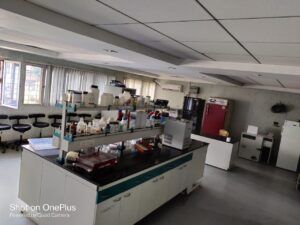 | 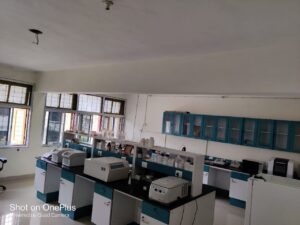 |
| Molecular Lab –I | Molecular Lab –II |
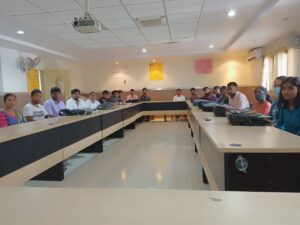 | |
| Conference Hall | |
Achievements
Varieties: More than 60 varieties of different crops have been released by the department. Some of the popular varieties developed in different crops are given below:-
Cereals:
Variety : Rajendra Shweta
|
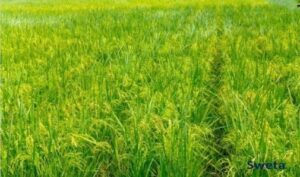 |
Variety : Rajendra Suwasini
|
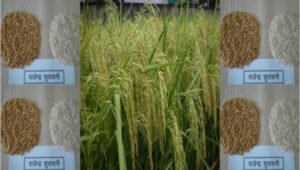 |
Variety : Rajendra Mahsuri 1
|
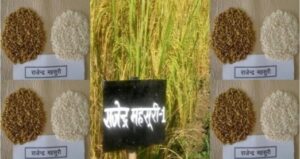 |
Variety : Rajendra Bhagwati
|
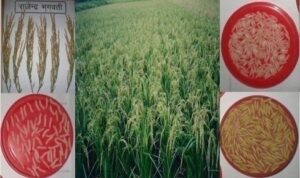 |
Variety : Swarna Sub-1
|
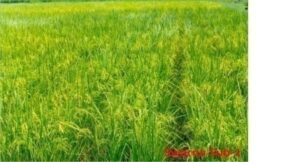 |
Variety : Rajendra Nilam
|
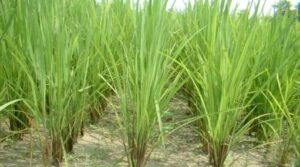 |
Variety : Rajendra Saraswati
|
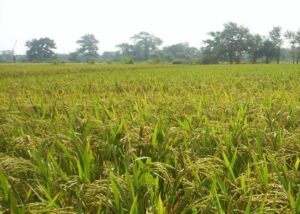 |
Wheat:
Variety : Rajendra Genhu-1
|
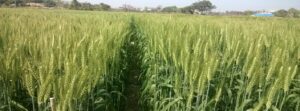 |
Variety : Rajendra Genhu-3 (WB02)
|
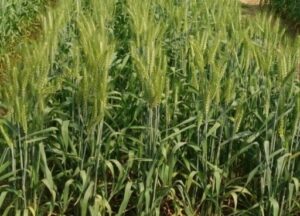 |
Maize:
|
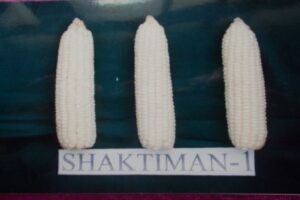 |
Variety/Hybrid : Shaktiman-2
|
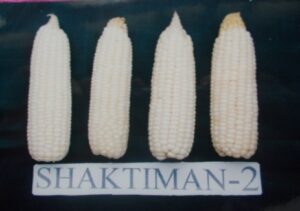 |
Variety/Hybrid : Shaktiman-3
|
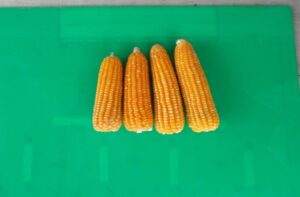 |
Variety/Hybrid : Shaktiman-4
|
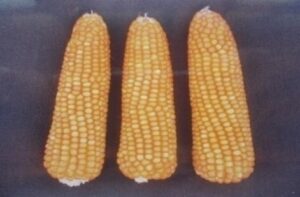 |
Variety : Saktiman-5
|
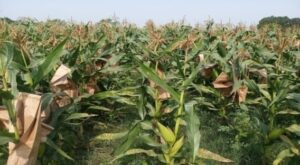 |
Variety/ Hybrid : Rajendra Hybrid Makka-3
|
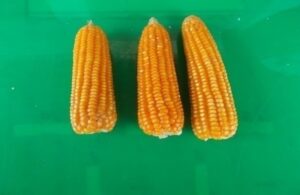 |
Small Millets:
Variety : Rajendra Kauni-1(Foxtail Millet)
|
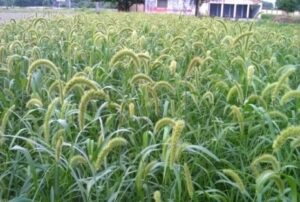 |
Variety : RAU-8 (Finger Millet)
|
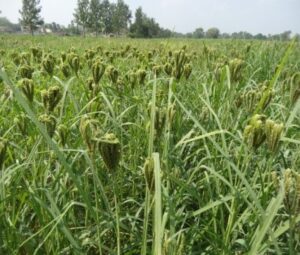 |
Variety : Rajendra Madua-1 (Finger Millet)
|
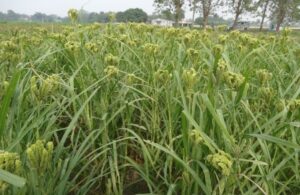 |
Pulses
Variety : Rajendra Arhar 1
|
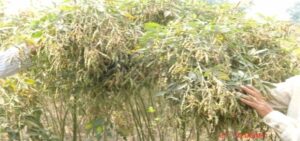 |
Rapseed and Mustard
Variety : Rajendra Suflam
|
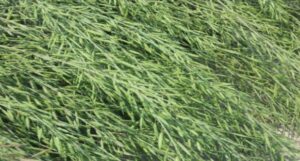 |
Sugarcane
Variety : Rajendra Ganna-1
|
 |
Faculty awards/honours:
Various national and international awards are conferred on eminent scientists of the department.
Student’s awards/achievements:
Many students of the department are recipient of awards and accolades from various prestigious registered professional societies and national organizations (ICAR & CSIR) that includes:
- ICAR-JRF
- ICAR-SRF
- ICAR-NET
- CSIR-JRF & LS
- Young Scientist/Researcher awards
- Many of the students are serving in various capacities in ICAR, SAUs, MNCs and Nationalised banks.
Research activities:
National and international projects:
- QTL to variety: Marker assisted Breeding of Abiotic Stress tolerant Rice Varieties wit major QTLs for drought, submergence and salt tolerance sponsored by D.B.T., New Delhi (DBT INDIA-IRRI Network project)
- Stress tolerance rice for poor farmers of Africa and South Asia-IRRI sponsored by IRRI, Philippines.
- ‘Biofortification of Rice’ sponsored by International food policy research institute, U.S.A.
- RKVY Project entitled “Development of Aerobic rice for sustainable rice production in Bihar”
- Project entitled “State Coordinated Trials of Rice”
- ‘Hybrid rice project’ Sponsored by RAU, Pusa.
- ‘Assigned to look after the work of hybrid rice testing trial’ sponsored by RAU, Pusa.
- ‘Rice Wheat cropping system under changing climatic scenario’ sponsored by RPCAU, Pusa.
- Project entitled “Biofotification of Wheat” funded by BMGF
- Project entitled “Development of heat tolerant, high yielding and climate resilient wheat cultivars by utilizing genomics, molecular and physiological information and resources” sponsored by USAID, USA.
- RKVY Project entitled “Pre-breeding and genetic enhancement for climate resilience in bread wheat”
- Project entitled “State Coordinated Trials of Wheat”
- RKVY Project “Enhancing Yield Potential through Pre-Breeding in Barley”
- University funded project entitled “Molecular characterization of Little Millet genotypes”.
- BMZ/GTZ/ICRISAT collaborative project “Sustainable conservation and utilization of genetic of two underutilized crops- finger millet and foxtail millet”
- NAIP project entitled “Improving livelihood security in salt affected districts of Bihar”
- ‘Sugarcane Breeder seed production programme’ sponsored by Cane Development Department, Govt. of Bihar
- ‘Strengthening and Renovation of Tissue cultue Laboratory’ at SRI, Pusa sponsored by Cane Development Department, Govt. of Bihar
- AICRP on Rice
- AICRP on wheat
- AICRP on fodder crops and utilization
- AICRP on Potato
- AICRP on Small Millets
National and international collaboration:
Department have collaborations with various national and international organizations like:
- HarvestPlus
- International Food Policy Research Institute (IFPRI)
- Department of Biotechnology (DBT)
- International Rice Research Institute
- International Crop Research Institute for Semi-arid Tropics (ICRISAT)
Publication:
Technical bulletins:
- Narayan A., Giri G. S., Singh R. S., Sudhanandini, Prasad R. and Singh P.P. (2020) Technical bulletin on tuber crops technologies.
Text books:
- Biometrical Genetics … A students’ guide by Banshidhar, Priyanka Jaisawal, Mithilesh Kumar Singh, Rajesh Kumar, Satish Kumar Singh, Nilanjaya. New Delhi Publishers, New Delhi, ISBN: 978-93-88879-98-9.
- Advances in Genetics, Breeding and Biotechnology by Ashish Narayan. Parmar Publication.
- Krishi Vigyan published by SCERT, Patna for I.Sc. (Ag.) students of class XI & XIIth .
Lab manuals: Practical manual for Fundamental of Genetics by Ashish Narayan.
Extension Activities:
Ongoing various extension activities:
- Department organizes various extension activities like-
- Front Line Demonstrations (FLDs) of newly developed varieties on farmers’ field on large scale.
- Farmers’ Fair.
- Farmers Meeting.
- Distribution of seeds of newly developed varieties for their rapid adoption (Minikit trials).
Seminars/conferences/workshops/trainings/Brainstorming sessions organized:
- Trainings for scientific cultivation of various crops are organized to train the farmers.
- Conferences to spread awareness on various contemporary problems in agriculture are organized time to time.
- Scientists are delivering invited lectures in various training programmes organized by external agencies and NGOs.
| Name | Designation | Contact No. | E-mail Id |
|---|---|---|---|
| Dr. Sweta Mishra | Professor | 9898128548 | sweta.mishra@rpcau.ac.in |
| Dr. Satish Kumar Singh | Associate Professor | 7250209227 | satish.singh@rpcau.ac.in |
| Dr. Nilanjaya | Assistant Professor | 6202843136 | nilanjaya@rpcau.ac.in |
| Dr. M. K. Singh | Assistant Professor | 7983312594 / 8986590206 | mithilesh.pbg@rpcau.ac.in |
| Mr. Aman Tigga | Assistant Professor | 7022479812/ 7992380388 | aman@rpcau.ac.in |
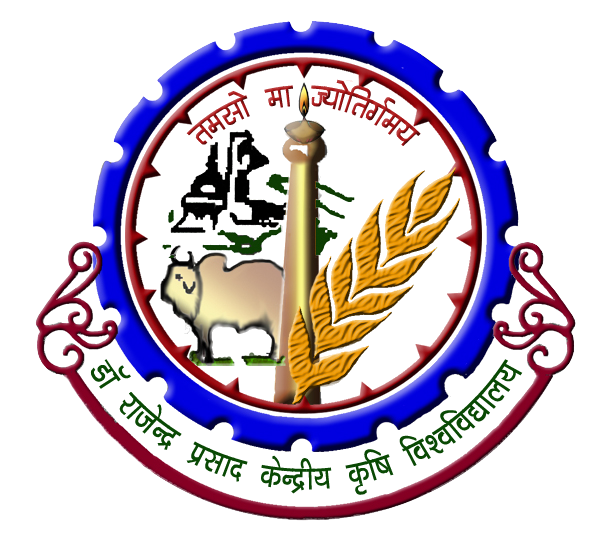




 Users Today : 131
Users Today : 131